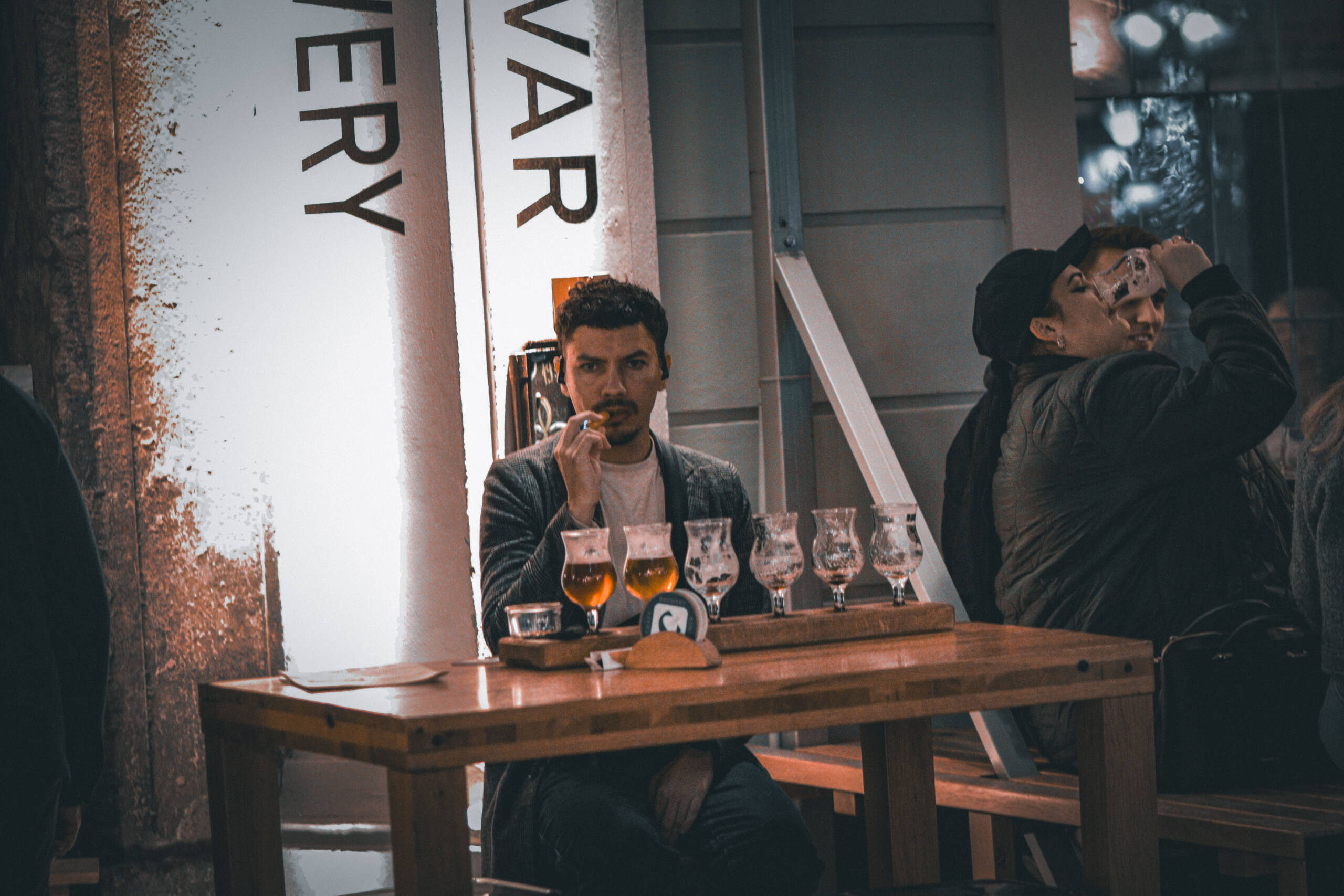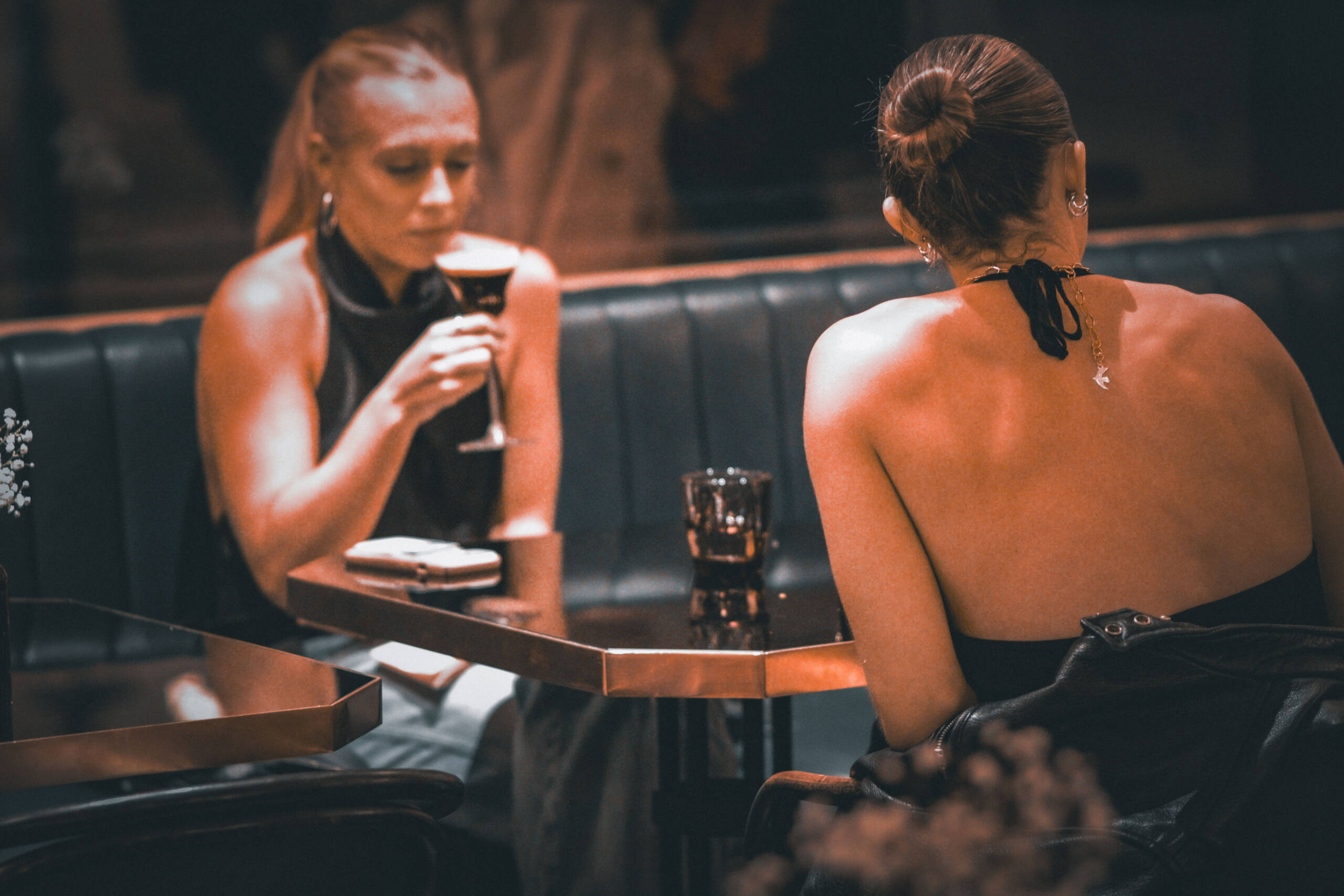There’s something hauntingly cinematic about this scene — a man sitting alone at a wooden table, half in shadow, half bathed in the pale light spilling from a nearby brewery sign. Five half-empty glasses of amber beer line up before him like silent witnesses to the night’s quiet unraveling. He lifts a cigarette to his lips, eyes fixed somewhere between thought and fatigue, and behind him, laughter bursts from another table — a woman mid-swig, carefree, her face tilted toward the neon haze reflected in the window. It’s a small but perfect slice of Prague at night: introspection meets chaos, melancholy meets pleasure.

The air here carries that peculiar blend of cigarette smoke, malt, and damp cobblestone. The music from a nearby club fades in and out with the opening of doors — a bassline, a snare, a fragment of synth. Somewhere down the street, a tram screeches by, its yellow light momentarily slicing through the darkness before disappearing into the labyrinth of the Old Town. The man doesn’t move; he sits like a figure from a noir film, the kind who drinks to remember rather than forget. Around him, the city hums with its usual contradictions — medieval façades lit by LED signs, students discussing philosophy over cheap beer, tourists stumbling between jazz bars and strip clubs.
Prague at night has this rhythm — slow and deliberate, yet charged with energy. It’s a place where solitude never feels lonely, just honest. Every bar table becomes a small stage, every passerby a character in someone else’s story. The brewery light paints everything in soft amber, almost forgivingly, as if to say that even indulgence has its beauty. And for a fleeting moment, under the hum of streetlamps and the glow of half-finished drinks, the city feels suspended between time — half past nostalgia, half before dawn.
The city slows down, but it never really sleeps. Inside a dimly lit cocktail bar, two women sit opposite each other — one with her back to the camera, bare shoulders gleaming softly under the amber glow, the other lost in quiet thought as she studies her glass of espresso martini. Their silence feels heavy, almost cinematic, like a moment held between confession and distraction. The mirrors and black leather seats around them seem to trap the low murmur of the place — the clinking of glasses, the muted laughter from the next booth, a saxophone whispering faintly through the speakers.

This is another side of Prague’s night — more intimate than the street bars, more deliberate than the chaos of the old-town clubs. It’s where the music slows down and people begin to think again, about what they’ve said, who they’ve met, and whether the city has given them more than they expected. The mood is warm but slightly melancholic, as if the amber light itself carries the memory of every conversation that once dissolved here.
Outside, neon signs flicker over the cobblestones, trams sigh as they pass, and the night carries on — elegantly, without hurry. Inside, the two women linger, their drinks half-finished, the air thick with that unmistakable Prague mix of perfume, smoke, and something bittersweet that you can’t quite name. The city, as always, is both a stage and a secret.
Leave a Reply